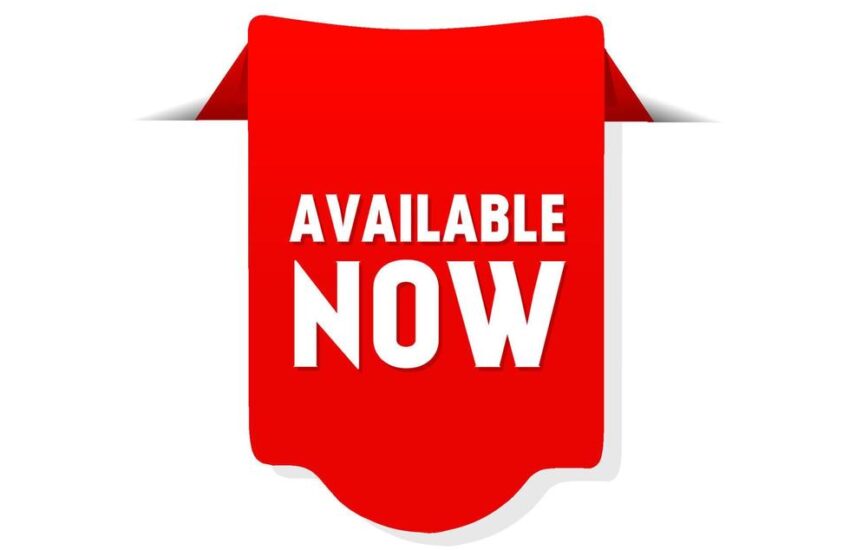Zvláštní nabídky k dispozici
Special offers are an essential marketing strategy that businesses utilize to attract customers and increase sales. By providing unique promotions or discounts, companies can entice potential buyers and foster customer loyalty. In today’s competitive market, understanding special offers and how to effectively communicate them can significantly impact a business’s success.
In this article, you will learn about the various types of special offers available, strategies for promoting them, and the importance of timing and targeting in your marketing campaigns. We will explore how different industries implement special offers, as well as the psychological aspects of consumer behavior related to discounts. By the end of this article, you will have a comprehensive understanding of how to leverage special offers to benefit your business.
Key points we will cover:
- Types of special offers
- Effective marketing strategies
- Timing your offers
- Understanding consumer psychology
- Case studies from various industries

Let’s dive deeper into the intricate world of special offers and how they can be used effectively in different business contexts.
Types of Special Offers
Understanding the different types of special offers is crucial for businesses to implement effective promotional strategies. Here are some popular types:
1. Discount Offers
Discount offers involve reducing the original price of a product or service. This can be a percentage off, a fixed dollar amount off, or bulk purchase discounts. For example, “Get 20% off your first order” is an attractive discount offer that can help convert new customers.
2. Buy One, Get One Free (BOGO)
BOGO deals encourage customers to purchase more products. This strategy can be quite effective in increasing average order values and moving excess inventory.
3. Limited-Time Offers
Creating urgency with limited-time offers can compel customers to act quickly. This could be a 24-hour flash sale, for instance, that prompts immediate purchasing decisions.
4. Loyalty Rewards
Implementing a rewards program can enhance customer loyalty. For instance, customers earn points for every purchase, which can later be redeemed for discounts or freebies.
5. Seasonal Offers
Seasonal promotions correspond with holidays or special occasions. This might include Christmas sales, Black Friday deals, or back-to-school promotions.
Utilizing a combination of these types can help businesses create a diverse range of attractive offers that appeal to various customer segments.
Effective Marketing Strategies for Special Offers
A successful special offer requires a well-planned marketing strategy. Here are some strategies to consider:
1. Targeted Marketing Campaigns
Identify your target audience and tailor your special offers to their preferences and needs. This could involve demographic research to ensure your promotions resonate with the right customers.
2. Utilize Social Media
Social media platforms are excellent channels for promoting special offers. Creating visually appealing posts and engaging stories can capture attention and drive traffic to your website.
3. Email Marketing
Email marketing remains a powerful tool for communicating special offers directly to your customers. Craft compelling subject lines and personalized messages to increase open rates and conversions.
4. Influencer Partnerships
Collaborate with influencers in your industry to amplify your special offers. Influencers can provide authentic endorsements and help you reach a broader audience.
5. Online Advertising
Consider using paid ads on platforms like Google or Facebook to promote your special offers. Target your ads based on interests, demographics, and user behavior to maximize your campaign’s effectiveness.
Implementing these strategies can significantly enhance your special offers’ visibility and effectiveness.
Timing Your Offers
Effective timing can make or break the success of a special offer. Here are some factors to consider:
1. Seasonality
Understanding seasonal trends can help businesses time their special offers appropriately. For instance, offering discounts during holiday seasons can lead to increased sales.
2. Current Events
Aligning your special offers with relevant current events or holidays can capture consumer attention. For instance, launching a summer sale during the start of summer can attract eager buyers.
3. Customer Purchase Behavior
Analyzing your customers’ purchasing behavior can help you determine the right time to launch your offers. For example, if data shows higher purchases over weekends, consider timing your promotions accordingly.
4. Testing and Tweaking
Employ A/B testing to discover the best timing for your offers. By analyzing customer responses over different periods, you can fine-tune your strategy for maximum impact.
By strategically planning the timing of your offers, businesses can increase the chances of customer engagement and conversion.
Understanding Consumer Psychology
The psychology behind consumer behavior plays a significant role in how they respond to special offers. Here are some insights:
1. Scarcity and Urgency
Consumers tend to value items more when they perceive them as scarce. Phrases like “limited time” or “only a few left” can create urgency and encourage quicker purchase decisions.
2. Social Proof
People often look to others for guidance on what to purchase. Highlight customer reviews or testimonials on your promotional material to establish credibility and encourage others to buy.
3. The Power of Framing
The way you present a special offer can affect how customers perceive its value. For instance, framing an offer as “$30 off” instead of “10% off” can trigger a stronger response.
4. Fear of Missing Out (FOMO)
FOMO can drive consumers to take action when they feel they might miss an opportunity. Highlighting exclusiveness in your offers can trigger this response.
Understanding consumer psychology allows businesses to craft more effective special offers that resonate with potential buyers.
Case Studies from Various Industries
Let’s take a look at how different industries utilize special offers:
1. Retail Industry
Retailers often leverage special offers during seasonal sales to boost sales. For instance, clothing stores may offer end-of-season discounts to clear inventory while attracting customers.
2. Food and Beverage
Many restaurants utilize BOGO offers or discount lunches to increase foot traffic during slower hours. Happy hour specials are also common to attract customers seeking value.
3. E-commerce
E-commerce businesses frequently implement discount codes during checkout to encourage purchases. They may also use free shipping offers above a certain order threshold to increase average cart values.
4. Travel and Hospitality
Hotels and airlines often use limited-time offers or package deals to attract travelers. Promotions around holidays and peak seasons can lead to significant upticks in bookings.
Analyzing successful case studies can provide valuable insights for businesses looking to develop their own special offers.
Conclusion
In conclusion, special offers are a powerful tool for businesses to attract customers, increase sales, and build loyalty. By understanding the various types of offers, implementing effective marketing strategies, timing promotions appropriately, and leveraging consumer psychology, companies can maximize the effectiveness of their special offers.
As the market continues to evolve, staying updated on trends and consumer behavior will help businesses tailor their offerings to meet customer needs and preferences. Embrace special offers in your marketing strategy and watch your sales and customer engagement flourish.
For further reading on effective marketing strategies, check out these articles: Effective Promotions and Maximizing Customer Engagement.
